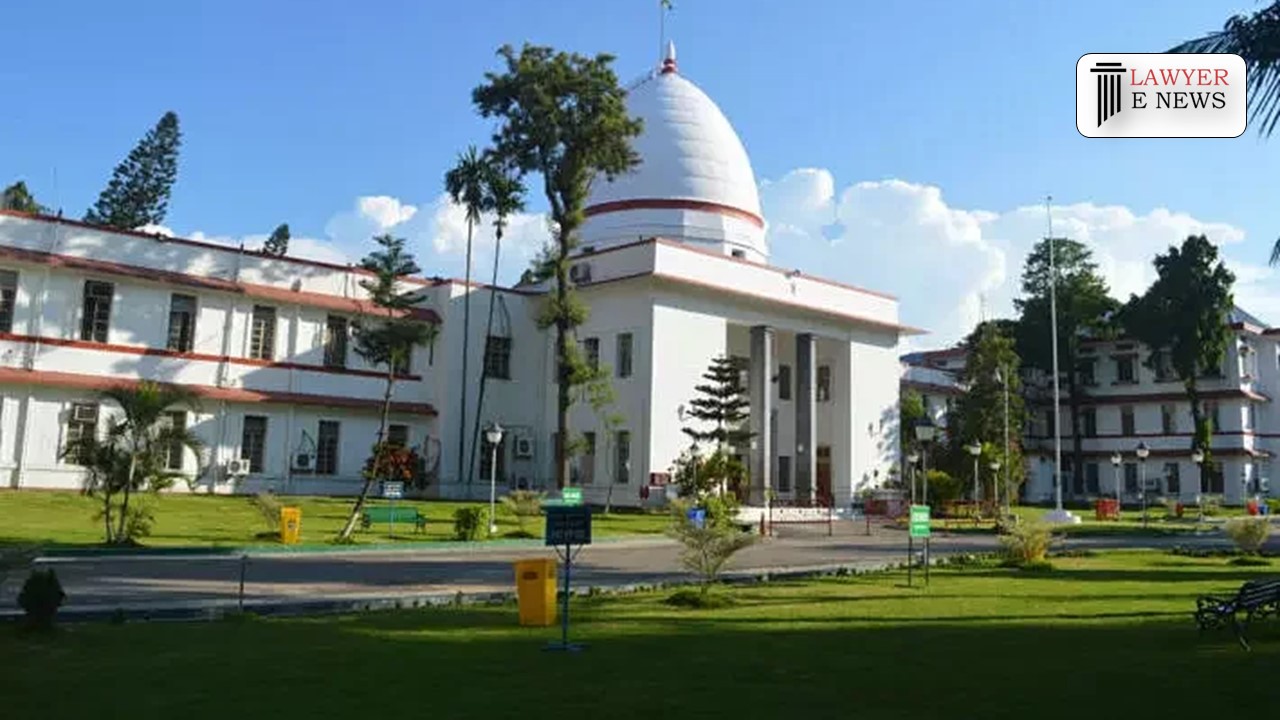-
by Admin
15 February 2026 5:35 AM



In a significant judgment, the Gauhati High Court has acquitted Abdul Sukkur, who was convicted by the Sessions Court for the murder of his wife, Jamila Begum. The bench, comprising Justices Manish Choudhury and Robin Phukan, found that the prosecution failed to prove Sukkur’s guilt beyond reasonable doubt, particularly due to unreliable hostile witnesses and the absence of direct evidence.
Background: The case dates back to the night of November 29-30, 2015, when Jamila Begum was found dead in her home in Simsimpur village, Karimganj district, Assam. Her husband, Abdul Sukkur, was accused of murdering her with a hoe and was arrested on the same day based on an FIR filed by the village defense party (VDP) secretary, Mahabbat Ali (P.W.1). The trial court convicted Sukkur under Section 302 of the Indian Penal Code (IPC) on June 12, 2017, sentencing him to life imprisonment and a fine of Rs. 500. Sukkur appealed the conviction, leading to the current proceedings in the High Court.
Credibility of Hostile Witnesses: The Court carefully analyzed the testimonies of prosecution witnesses who were declared hostile. Justices Choudhury and Phukan noted that the hostile witnesses, namely P.W.2 (Rahima Begum), P.W.3 (Sahab Uddin), and P.W.5 (Abdul Mannan), did not provide consistent or reliable evidence that could substantiate the prosecution’s case. “The testimonies of hostile witnesses cannot be wholly disregarded, but in this case, they did not provide sufficient corroboration to convict,” the bench observed.
Legal Standards for Circumstantial Evidence: The Court emphasized the stringent standards required for convicting an accused based on circumstantial evidence. Citing the principle from Sharad Birdhichand Sarda v. State of Maharashtra, the judgment stressed that “the entire chain of circumstances must be complete and unerringly point to the guilt of the accused, excluding any other hypothesis.”
Detailed Analysis: The judgment dissected the lack of direct evidence linking Sukkur to the crime. Despite the injuries on Jamila Begum being consistent with a homicidal attack, there was no conclusive evidence proving that Sukkur committed the act. Furthermore, the prosecution failed to establish a motive or any clear link between Sukkur and the crime scene. The evidence presented, including the testimonies of P.W.1 (Mahabbat Ali) and P.W.4 (Dr. Zakir Hussain Laskar), did not fulfill the required legal thresholds for conviction.
Justice Choudhury stated, “Merely because a witness is declared hostile, his entire evidence is not to be excluded from consideration. However, in this case, the testimonies of hostile witnesses did not provide the requisite corroboration to establish guilt beyond reasonable doubt.”
Decision: The Gauhati High Court’s decision underscores the judiciary’s commitment to upholding the principle that an accused is presumed innocent until proven guilty beyond reasonable doubt. This judgment reinforces the importance of reliable and direct evidence in securing a conviction, particularly in cases involving serious charges such as murder. The acquittal of Abdul Sukkur serves as a reminder of the high standards of proof required in criminal law, ensuring that justice is not only done but seen to be done.
Date of Decision: 22nd May 2024
Abdul Sukkur vs. The State of Assam
